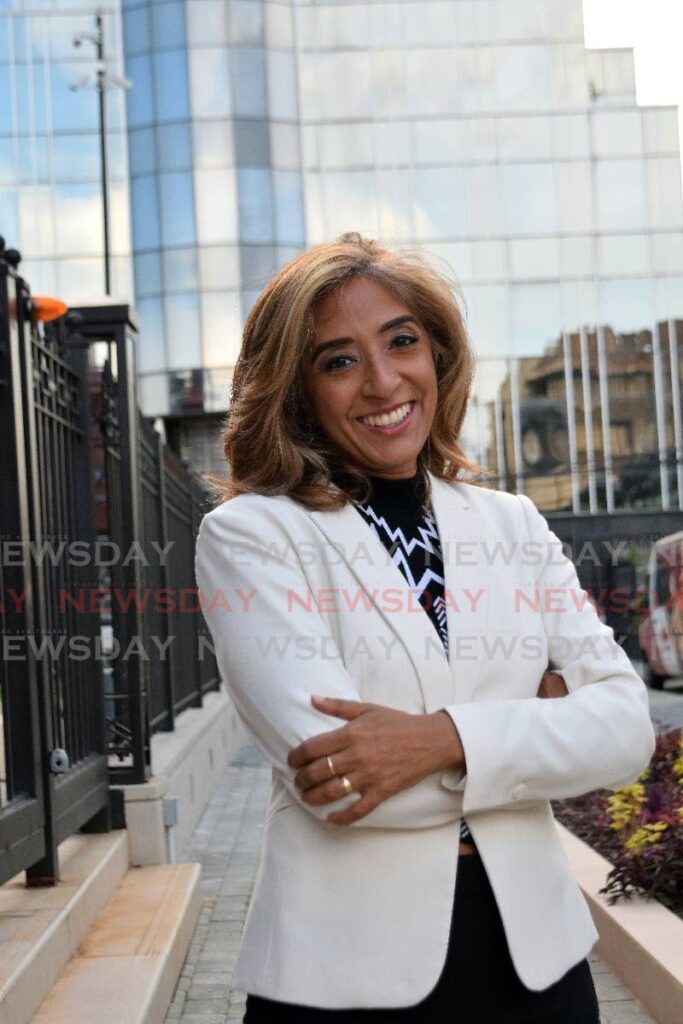Towards safe period cycles

DR GABRIELLE JAMELA HOSEIN
FOR MANY years, UWI students in my Women’s Studies class opted to do their popular actions, meant to raise awareness about women’s rights, on issues related to menstruation. Groups of young women and men created petitions to the Guild of Students for free distribution of pads and tampons in women’s washrooms. They held open-air workshops outside of the library on health challenges associated with menstruation, and natural remedies. They created games about myths and facts, awarding winners menstruating vagina cupcakes, designed with multi-coloured icing and quite delicious.
These were opportunities for students to practise peer education, particularly on issues miscast as private. Menstruation provides an excellent example of such casting. Its intersections with public discourses of shame, workplace demands, health-sector response, poverty, and access to clean water and sanitation facilities are largely invisible.
We still consider public talk about periods to be too personal, despite half of the population bleeding every month for most of their lives, with implications for their school participation, health, employment and costs of living.
These student actions didn’t lead to sustained activism, but I thought of them seeing feminist organising finally emerge. Today, Feminitt Caribbean, founded by Ashlee Burnett, is showing such leadership, with a Safe Cycle project which includes public education and period kits which provide three months of period products plus tools, resources and information for 120 young people.
The project tackles myths and stigmas that can make people who menstruate feel unsafe, alienated and ashamed. It’s keen to engage men and boys in education efforts, recognising that they are excluded from information about menstruation too early on.
It highlights the challenges of period poverty, which is when young people can’t afford pads or painkillers or healthy food that prevents anaemia, or don’t have equitable access to clean running water for menstrual hygiene, particularly in rural or low-income areas.
Finally, the Safe Cycle project will undertake a needs assessment of the 120 young people to identify and support those who need help accessing gynaecological care to enable them to have safe cycles.
For these young activists, including Sapphire Alexander, who created the digital initiative Caribbean Feminist; Amy Li Baksh, who produces eco-friendly period products through her small business the Lily Pads Project; and Feminitt’s current team of Chanelle Beatrice, Jade Sullivan, Saidi Moseley and Alexandria Sanchez, as Burnett puts it, “Being able to have a safe cycle is a human right. It is a slice of having good health and well-being.”
Expanding our understanding of women’s needs as human rights is essential as is seeing menstrual equity as an issue of gender, sexual and economic justice, and even as part of rights of disabled people. Meeting these needs through the recently launched Safe Cycle Care Bank in east Trinidad ties strategic advocacy, to shift beliefs and policies, to practical needs best met through service provision.
The Safe Cycle Care Bank is a Feminitt collaboration with Deidra Engaging and Nurturing Teens (DENT), which is led by youth activist Deidra Williams, who is based in Five Rivers, Arouca, where the bank is now established and from where it hopes to extend to Couva and Point Fortin, for example through partnerships with the local government councillors, schools and village councils.
The bank built on the Safe Cycle Report, authored by Burnett, Shalinee Bahadur and Chanelle Beatrice and gorgeously designed by Xala Ramsesar. Over 2021, Feminitt collected 25 stories from people who menstruate, 330 contributions to a Twitter chat in collaboration with WE-Change Jamaica, and 509 responses to a survey administered through social media to menstruating people living in TT. The report uses the term “menstruating person” to be inclusive to transgender, intersex and non-binary people who experience menstruation.
It concluded that period poverty is prevalent here. Nearly half of the sample knew or thought they know someone who could not afford period products and just under a third were unable to afford such products themselves. An average of $100 was spent on period products per month, per person. About 20 per cent of respondents indicated missing school or work because of lack of menstrual products.
Recommendations include a sexual and reproductive health hotline, free period products and improved comprehensive sexuality education which tackles wider taboos regarding women’s bodies and sexual and reproductive rights.
We continue creating greater consciousness about gender equality until, one day, movements take it up, often with young feminists leading the crowd. These young women, with their systematic and collaborative action on period poverty, would make my past students very proud.


Comments
"Towards safe period cycles"